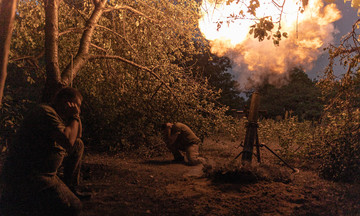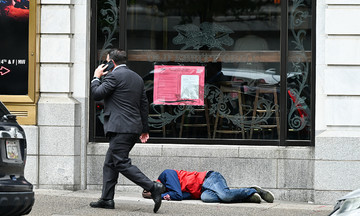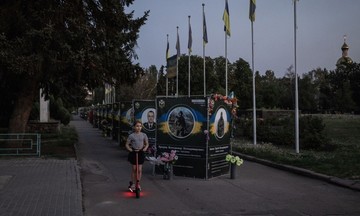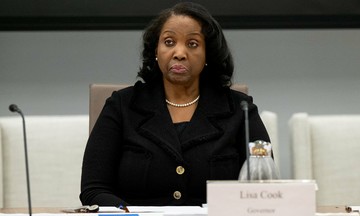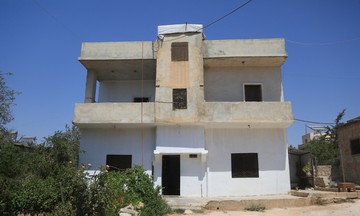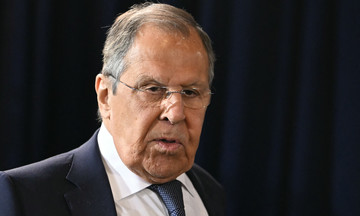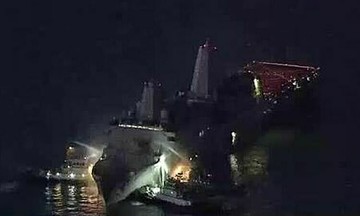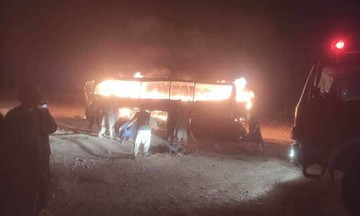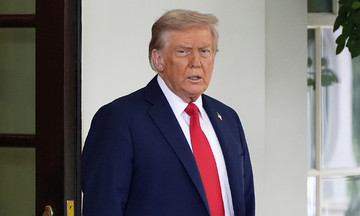Following Donald Trump's presidential victory last year, Washington Mayor Muriel Bowser flew to his Mar-a-Lago resort in Florida for a meeting.
When Republicans pressured her about the enormous "Black Lives Matter" mural installed in front of the White House during Trump's first term, Bowser agreed to its removal. She cited the city's more pressing issues, particularly the crisis stemming from Trump's federal job cuts that year.
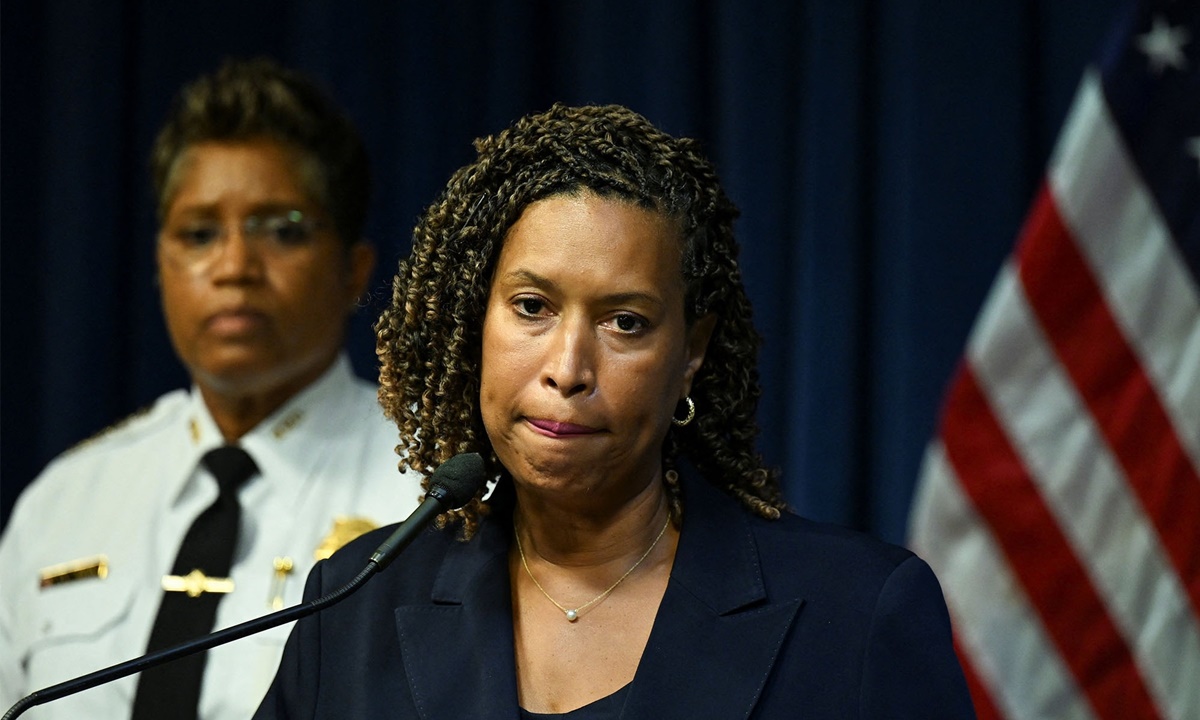 |
Mayor Muriel Bowser at a press conference in Washington, D.C. on 11/8. Photo: Reuters |
Mayor Muriel Bowser at a press conference in Washington, D.C. on 11/8. Photo: Reuters
Now, with Trump's decision to directly control the D.C. police and deploy the National Guard to Washington, Bowser faces perhaps her greatest test yet as a leader and in navigating her relationship with the White House.
After Trump stripped the city government of its control over the police force, Bowser, on 11/8, called the move "unprecedented and unsettling," arguing it would erode the city's autonomy. However, she remained composed, avoiding direct anger or criticism of the president. "I can't say that, because we've been surprised by some past rhetoric," she said, without elaborating.
Minutes later, Bowser shifted her tone, suggesting the federal intervention in D.C.'s security could benefit the city and acknowledging she lacked the legal authority to block the president's plan. "Having more law enforcement present in neighborhoods can be a positive thing," she stated.
A day later, Bowser adopted a stronger tone in an online conversation with community leaders. When D.C. leaders asked what residents could do, she declared: "This is the time for community action, and all of us to do what we can to protect our city and our autonomy, to protect our 'home rule,' against him, and to make sure that we can elect a Democratic House to be a firewall against this kind of action."
On 13/8, when asked about her relationship with President Trump, she described it as "consistent."
"The mayor of Washington and the president of the United States will probably always have more interaction than any other mayor in the country. So we will continue to do our jobs," she said.
Bowser's tone has been notably milder than other Democratic voices opposing Trump. House Minority Leader Hakeem Jeffries criticized Trump as lacking credibility on law and order, calling the White House the "most dangerous place in America right now."
Other Democrats, such as Los Angeles Mayor Karen Bass, who dealt with Trump deploying the National Guard to her city, also disagreed with the president's actions. "To me, it's all a stunt, and I don't think the U.S. military should be used for political stunts," she said.
Christina Henderson, a Washington city council member, expressed sympathy for Bowser's predicament. Henderson noted that Congress only allowed D.C. residents to elect a mayor, council, and neighborhood commissioners in 1973, but prohibits the council from enacting certain regulations. Washington is considered a district, but has no voting representation in the House or Senate.
"You don't want to be a mayor who loses home rule and there won't be any mayor after you," Henderson said.
When asked if she planned a stronger response to Trump's actions, Bowser remained diplomatic, avoiding direct confrontation. "My posture will be consistent with what I think is important for the city, and what is important is that we can take care of our citizens," she emphasized.
Tom Sherwood, a political analyst for Washington's public radio station WAMU, assessed that Bowser is trying to act strategically. "I think the Mayor has done all she can do to respond to President Trump’s erratic behavior," Sherwood said. "In the President’s view, Washington is a too-liberal, majority-Black city that doesn’t care about fighting crime, and that makes the Mayor and the City Council prime targets."
In contrast to Bowser's conciliatory approach, opposition to Trump is growing louder on the streets of Washington.
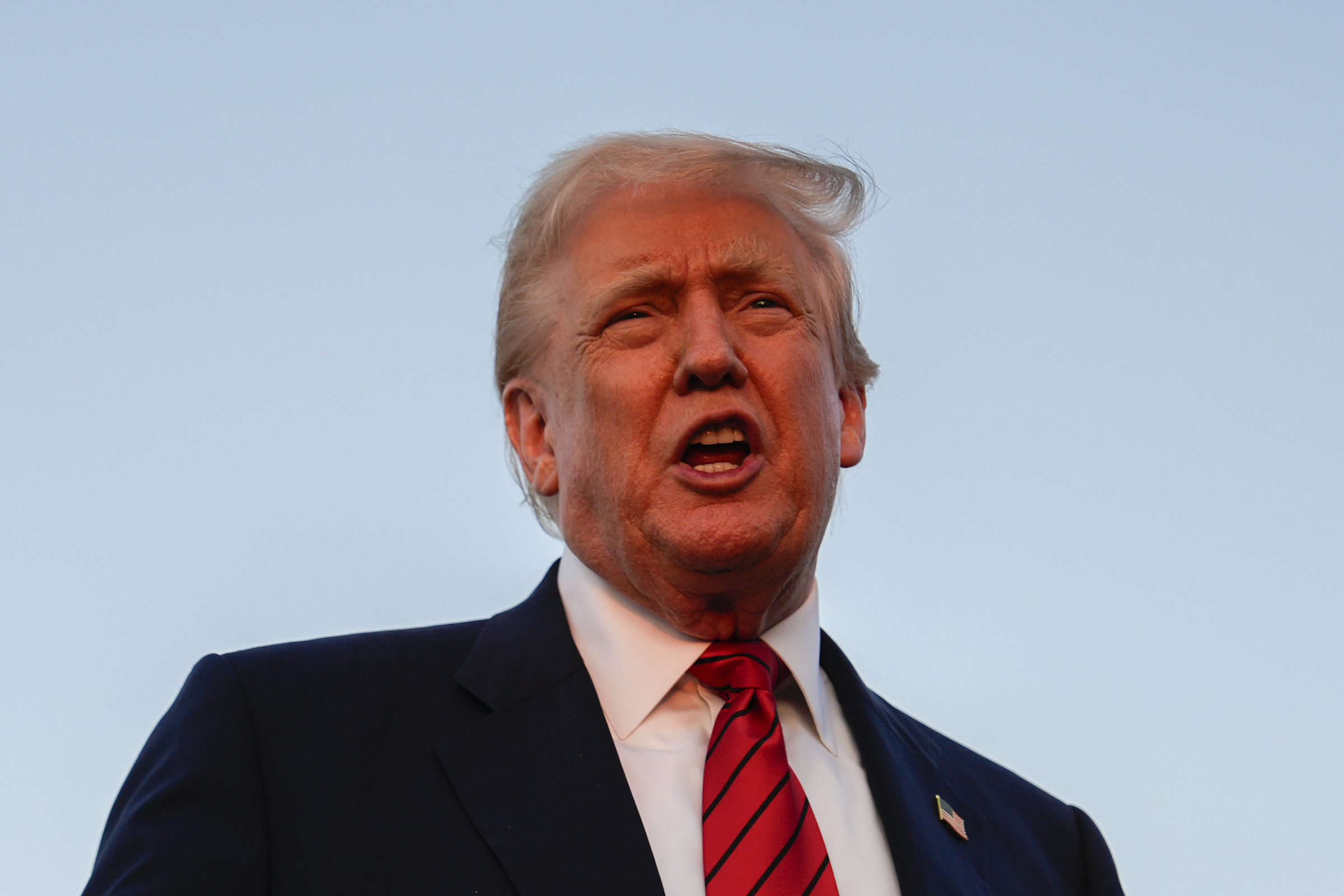 |
U.S. President Donald Trump in Allentown, Pennsylvania, on 3/8. Photo: AP |
U.S. President Donald Trump in Allentown, Pennsylvania, on 3/8. Photo: AP
Free DC, a movement advocating for D.C. statehood, held a protest last week against the Trump administration's actions. Organizers accused the president of inciting violence and compared the arrests of suspected undocumented immigrants to "kidnappings."
Nee Nee Taylor, organizing director of Free DC, expressed skepticism about the effectiveness of increased policing compared to investing in social programs to support the most vulnerable. When asked if she was disappointed that Bowser hadn't reacted as strongly as the community wanted, Taylor said she thought the mayor was doing all she could. "I think she’s doing the best she can with D.C. not being a state with a higher level of power," Taylor said.
Vu Hoang (According to CNN, AFP, Reuters)



